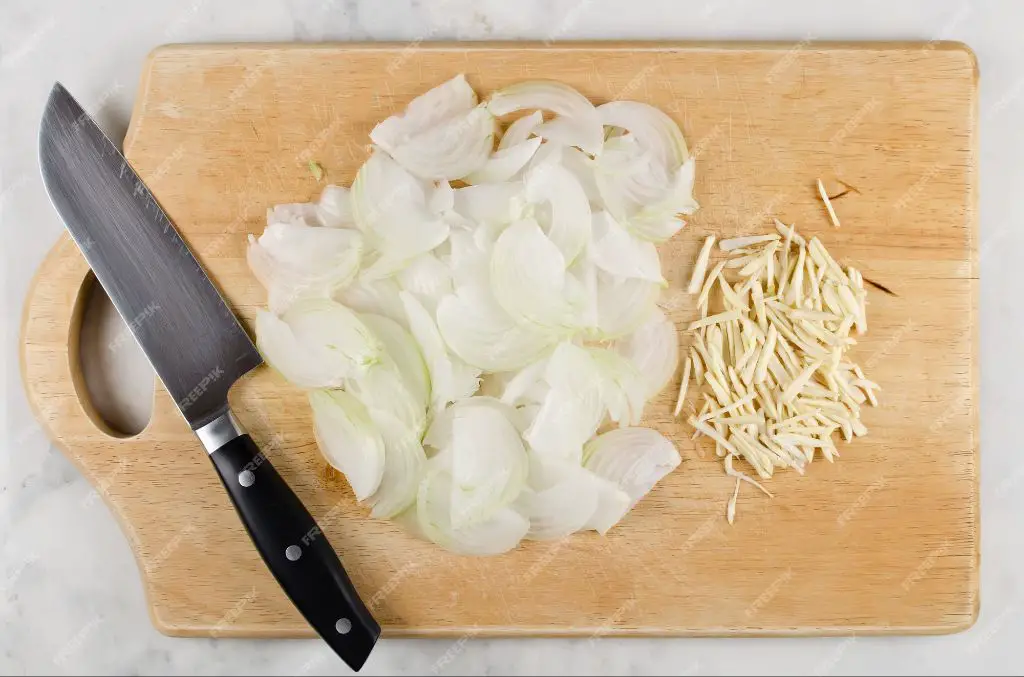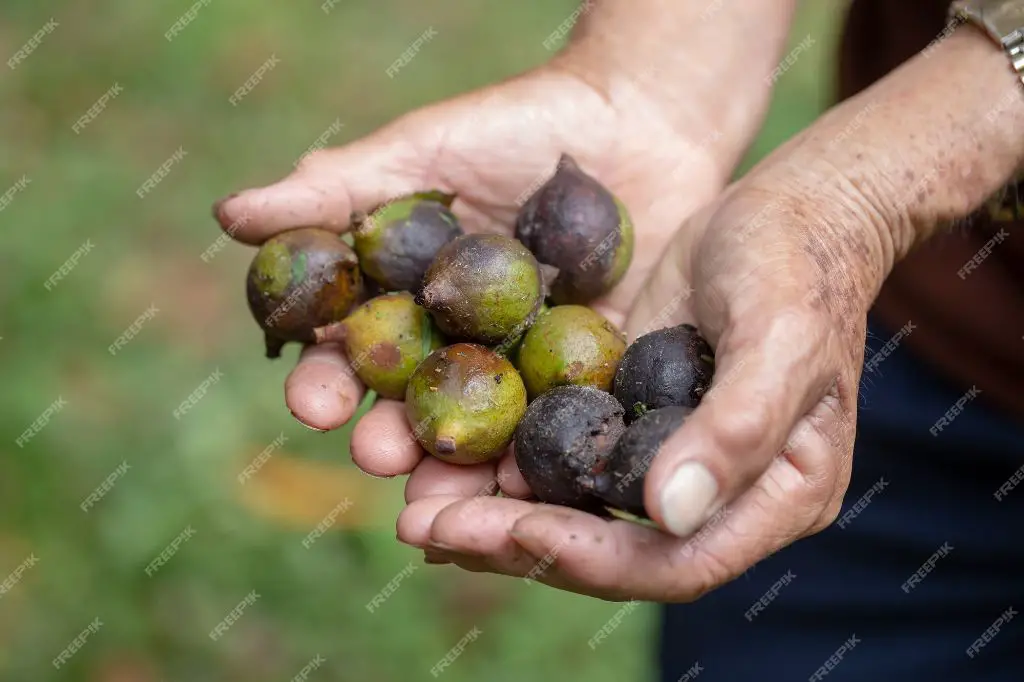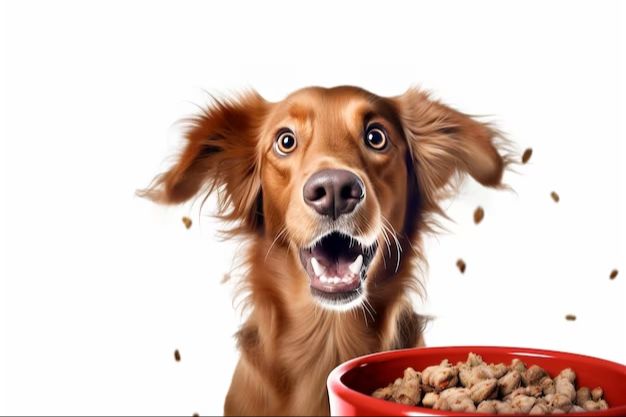Introduction
Dogs have different nutritional needs than humans. While we love to share treats with our canine companions, some human foods can be toxic to dogs. In fact, around 10% of calls to the Pet Poison Helpline involve dogs who have eaten human food. As dog owners, it’s important to know which foods to avoid giving your pet. Certain ingredients and foods can cause anything from an upset stomach to life-threatening conditions if ingested by dogs.
Chocolate
Chocolate contains methylxanthines like theobromine and caffeine, which dogs cannot metabolize as efficiently as humans can. When dogs eat chocolate, the theobromine remains in their system longer and can reach toxic levels. The darker the chocolate, the more toxic it is.

The most common symptoms of chocolate poisoning in dogs include:
- Vomiting
- Diarrhea
- Increased thirst
- Panting
- Restlessness
- Elevated heart rate
- Seizures
The amount of chocolate that is toxic depends on the type of chocolate and the size of the dog. The smaller the dog, the greater the risk. Even small amounts of chocolate can make small dogs sick.
Xylitol
Xylitol is a common sugar substitute used in many sugar-free gums, candies, and even some peanut butters. It is extremely toxic to dogs. While humans and other mammals digest xylitol just fine, dogs are unable to break it down properly. When dogs ingest xylitol, their bodies mistake it for regular sugar and it can lead to a life-threatening drop in blood sugar levels. The effects of xylitol ingestion can include vomiting, weakness, loss of coordination, collapse, seizures, and liver damage or failure. Even small amounts of xylitol can be dangerous to dogs. As little as 0.1 grams of xylitol per kg of your dog’s body weight is enough to result in hypoglycemia. To put that into perspective, one stick of xylitol-sweetened gum typically contains about 1 gram of xylitol. So if your medium-sized 25 lb dog got ahold of just one piece of gum containing xylitol, it could be enough to cause a medical crisis. Always keep products containing xylitol well out of your dog’s reach and contact your vet immediately if you think your dog may have ingested anything containing it.
Onions and Garlic
Onions and garlic contain compounds that can be toxic to dogs if consumed in large quantities. The main issue is that onions and garlic contain the toxic breakdown products thiosulphate and sulfoxides.

When onions and garlic are digested, these compounds are broken down into reactive sulfur-containing molecules that can damage red blood cells through oxidative damage. This can lead to a condition called hemolytic anemia, where the red blood cells burst and die prematurely.
Dogs with anemia become extremely weak and lethargic. They may have pale gums, increased heart rate, shortness of breath, dark urine, and other symptoms. Anemia can be life-threatening if left untreated. Even small ingestions of onions or garlic over time can accumulate and lead to toxicity.
To keep dogs safe, all forms of onions and garlic should be avoided. This includes fresh, dried, powdered, cooked onions and garlic, as well as anything containing onion or garlic powders. Keep foods containing these ingredients away from your dog.
Grapes and Raisins
Grapes and raisins can be very dangerous for dogs to consume. The exact mechanism is not fully understood, but grape and raisin ingestion, even in small quantities, has been shown to potentially lead to acute kidney failure in dogs.
Veterinarians have been warning about the dangers of grapes and raisins for dogs since the early 2000s. The onset of symptoms is usually rapid, occurring within 24 hours of ingestion. These symptoms may include vomiting, lethargy, decreased urine production, abdominal pain, loss of appetite, and diarrhea. Without prompt treatment, dogs can develop life-threatening anemia and kidney damage.
The amount that needs to be ingested to cause kidney failure varies from dog to dog. However, evidence suggests that even a few grapes or raisins can be problematic. For this reason, it’s generally recommended to avoid giving any grapes or raisins to dogs, even as treats.
If your dog eats grapes or raisins, take him to the veterinarian or animal hospital immediately. They can induce vomiting and provide IV fluids to help protect the kidneys from further damage.
Grape and raisin toxicity appears to only affect dogs, and not other animals. But err on the side of caution and keep grapes and raisins away from all pets.
Alcohol
Alcohol should be avoided for dogs as it can be toxic and dangerous if ingested. Even small amounts can negatively impact a dog’s health and cause concerning symptoms.
Specifically, alcohol ingestion may lead to vomiting, diarrhea, lack of coordination, and difficulty breathing. In severe cases, it can even cause respiratory system failure.
This is because alcohol has a more significant impact on dogs due to their smaller size. Their bodies cannot metabolize it as efficiently as humans. Even beer, wine or liquor given in small quantities can be harmful.
Therefore, it’s best to keep all alcoholic beverages away from your dog’s reach. Even drinks left unattended for a short period could be lapped up and consumed by your curious canine.
If you suspect your dog has ingested alcohol, contact your veterinarian right away. Seeking prompt treatment can help prevent long-term health consequences.
Macadamia Nuts
Macadamia nuts contain unknown toxins that can be harmful to dogs. When ingested, these toxins can cause muscle weakness, hyperthermia, and swelling of the limbs (edema) in dogs. The specific toxins have not yet been identified, but they appear to affect dogs’ muscles and nervous systems. Some researchers believe the toxins may interfere with dogs’ ability to regulate body temperature, resulting in hyperthermia.

While the exact mechanisms are still being studied, ingesting macadamia nuts clearly causes distress and illness in dogs. Signs of macadamia nut poisoning include muscle tremors, inability to stand, depression, vomiting, and elevated body temperature. These symptoms tend to appear within 12 hours of a dog eating macadamia nuts.
Treatment mainly involves supportive care while the toxins leave the dog’s system. Dogs are given intravenous fluids to prevent dehydration and medications to control fever, vomiting, and pain. With treatment, dogs usually make a full recovery in 12-48 hours. However, macadamia nut poisoning can be serious if not treated promptly.
To keep your dog safe, do not feed him any foods containing or flavored with macadamia nuts. Even small amounts can be harmful. Store macadamia nut products out of your dog’s reach and be mindful when walking him, as fallen nuts can be tempting. If you suspect he ingested macadamia nuts, contact your veterinarian right away.
Cooked Bones
While bones can be an enjoyable chew treat for dogs in their raw form, you should never give your dog cooked bones. When bones are cooked, they can splinter and become brittle. These small, sharp pieces of bone can then lodge themselves in your dog’s throat, stomach, or intestines. This can lead to choking hazards, intestinal obstructions, punctured organs, and other serious medical issues. Some cooked bones are more hazardous than others – cooked poultry bones tend to splinter easily and should always be avoided. Other bones like pork or beef bones may seem safe if they don’t splinter when chewed on, but pieces can still break off or lead to cracked teeth. Ultimately, no cooked bone is 100% safe for your dog. To avoid any risky situations, be sure to only give your dog raw bones that are safe for consumption. Never offer cooked bones of any kind.
Fatty foods
Dog owners should avoid feeding their dogs high-fat foods, as they can lead to a dangerous condition called pancreatitis. Pancreatitis is an inflammation of the pancreas that develops when a dog’s digestive enzymes activate before they reach their intestines. The activated enzymes attack the pancreas itself, causing severe inflammation and pain.
Fatty foods like bacon, sausages, butter, and ice cream are very high in fat. When dogs consume lots of fatty foods, it can overload their digestive system and trigger pancreatitis. The condition is very painful and can be fatal in severe cases, requiring emergency veterinary treatment and hospitalization.
To keep your dog safe, do not give them table scraps that are fatty. Make sure their regular meals are formulated for a dog’s nutritional needs and lower in fat. Signs of pancreatitis include vomiting, abdominal pain, diarrhea, loss of appetite, dehydration, weakness, and fever. If you suspect your dog has pancreatitis after eating a fatty meal, take them to the vet right away as it can quickly become life threatening.
Conclusion

Proper canine nutrition is extremely important for your dog’s health and wellbeing. In this article, we discussed several foods that dogs should avoid, including chocolate, xylitol, onions, grapes, alcohol, macadamia nuts, cooked bones, and fatty foods.
These foods can cause a range of issues for dogs, from stomach upset to kidney failure and even death in some cases. It’s crucial to keep these foods out of reach of your dog.
Be sure to read all food packaging carefully and don’t feed your dog from the table, as you may unknowingly give them something dangerous. If you have any concerns about your dog’s diet, speak to your veterinarian for tailored nutritional advice.
With knowledge of what human foods are unsafe for dogs, we can help our canine companions live long, healthy, and happy lives by feeding them an appropriate diet.